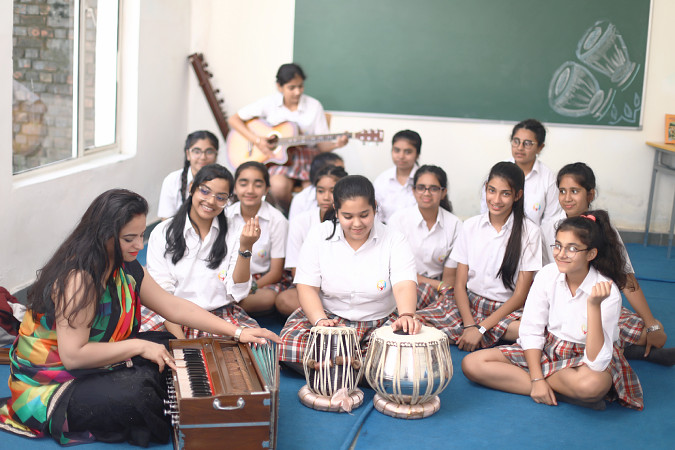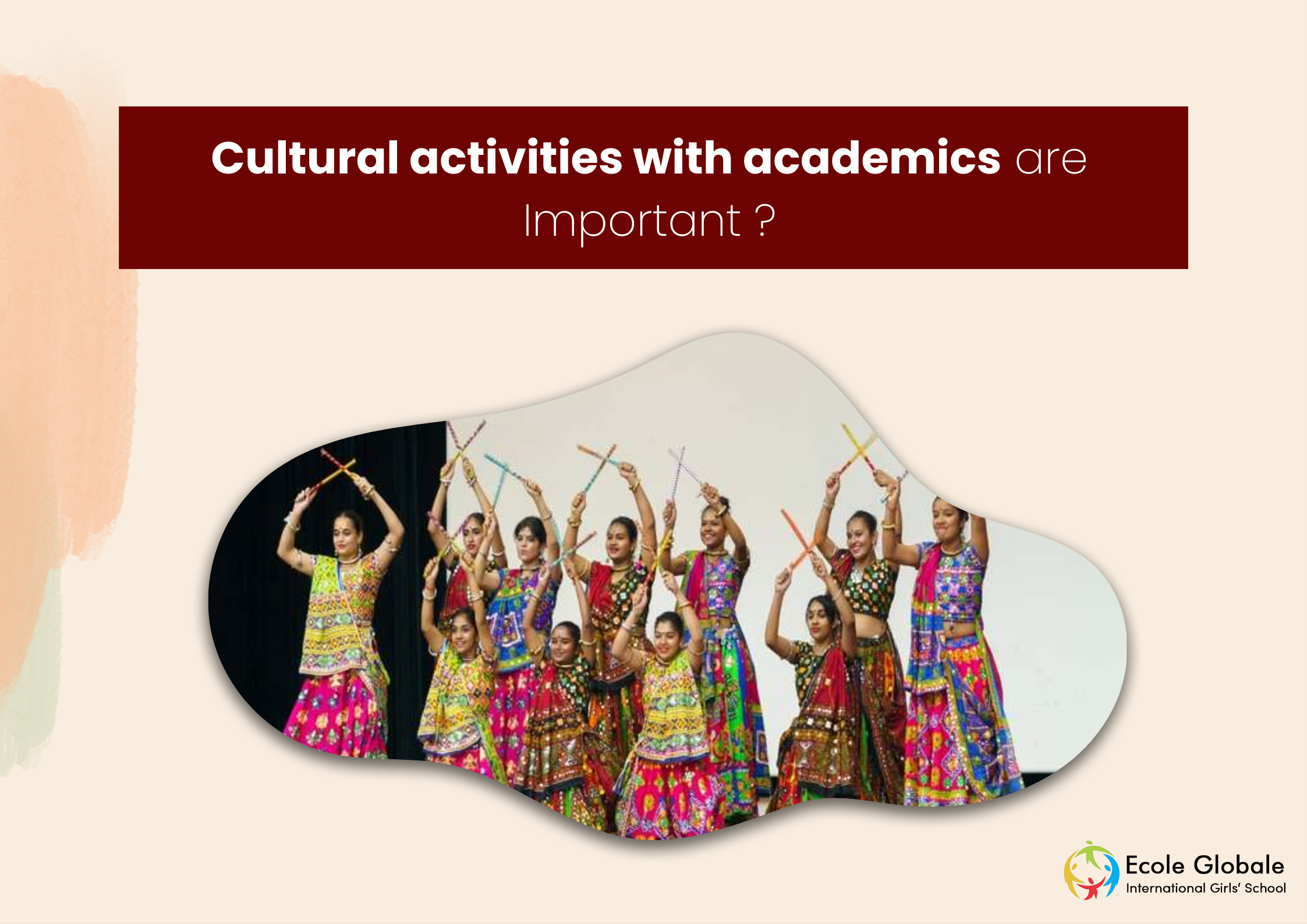Education has long been regarded as a cornerstone of personal and societal development. The pursuit of knowledge and academic achievements is deeply ingrained in our cultural and societal norms.
Historically, the emphasis has been predominantly on academic success as a measure of an individual’s intelligence, competence, and potential contribution to society.
Definition of Cultural Activities

Cultural Activities with Academics:
Cultural activities with academics encompass a broad spectrum of expressive forms, including arts, literature, music, dance, theater, and various other creative outlets.
These activities provide a platform for individuals to explore and communicate their emotions, thoughts, and experiences. They serve as a vibrant tapestry that reflects the richness and diversity of human culture.
Emphasizing Diversity in Cultural Activities:
It’s essential to recognize the vast diversity within cultural activities with academics. Different societies, regions, and communities contribute unique elements to the cultural landscape.
The varied forms of expression not only enrich our understanding of humanity but also provide avenues for individuals to connect with their heritage, fostering a sense of belonging and identity.
Holistic Development

Limitations of a Purely Academic Focus:
While academic pursuits are crucial, they may have limitations in addressing the holistic development of individuals. The exclusive focus on grades and exams may neglect the development of crucial life skills, emotional intelligence, and creativity, aspects that are equally vital for success in a rapidly evolving world.
Cultural Activities and Emotional, Social, and Intellectual Growth:
Cultural activities with academics contribute significantly to emotional, social, and intellectual growth. Engaging with the arts allows individuals to express themselves creatively, fostering a deeper understanding of their emotions and thoughts.
Exposure to different forms of cultural expression enhances cognitive abilities, encouraging critical thinking, problem-solving, and analytical skills.
Examples of Cultural Activities Fostering Creativity:
Consider instances where participation in cultural activities with academics has led to the cultivation of creativity. For example, a student involved in theater may develop skills in improvisation, collaboration, and thinking on their feet.
Such experiences extend beyond the classroom, providing a well-rounded education that goes beyond rote memorization and standardized testing.
Enhancing Social Skills
![]()
Cultural Activities and Teamwork, Collaboration, Communication:
Participation in cultural activities with academics, whether in a group performance or collaborative art project, inherently involves teamwork, collaboration, and effective communication. These social skills are invaluable in various aspects of life, from the workplace to personal relationships.
Role of Cultural Activities in Building Empathy:
Cultural activities with academics serve as powerful tools for building empathy. By exploring and understanding different cultural perspectives through literature, art, or music, individuals can develop a more profound appreciation for diversity. This empathy, in turn, fosters a more inclusive and compassionate society.
Social Interaction and Community Engagement through Cultural Activities:
Cultural activities provide platforms for social interaction and community engagement. Whether through attending cultural events, participating in community art projects, or joining a local choir, individuals build connections that go beyond the academic sphere. These connections contribute to a sense of community and shared experiences.
Stress Relief and Well-being
![]()
Role of Cultural Activities in Stress Reduction:
Amid the pressures of academic life, cultural activities offer a reprieve and a source of stress relief. Engaging in creative pursuits allows individuals to disconnect from the demands of daily life, promoting relaxation and mental well-being.
Therapeutic Aspects of Creative Expression:
Creative expression, be it through visual arts, writing, or music, has therapeutic benefits. It provides an outlet for individuals to process and communicate complex emotions, contributing to mental health and overall well-being.
Connection between Cultural Engagement and Mental Health:
Research indicates a strong connection between cultural engagement and positive mental health outcomes. Exploring the arts and participating in cultural activities has been linked to reduced stress, improved mood, and enhanced overall psychological well-being.
Cultural Identity and Diversity

Preserving and Celebrating Cultural Identity:
Cultural activities play a pivotal role in preserving and celebrating cultural identity. They provide a medium through which traditions, stories, and customs can be passed down from generation to generation. This preservation is crucial in maintaining a sense of continuity and connection to one’s roots.
Fostering Inclusivity and Tolerance:
Exposure to diverse cultural activities with academics fosters inclusivity and tolerance. As individuals engage with different perspectives and traditions, they develop a broader understanding of the world, breaking down stereotypes and promoting a more accepting society.
Contributing to a Sense of Belonging and Pride:
Cultural activities contribute significantly to a sense of belonging and pride. Whether through participating in cultural festivals, showcasing artistic talents, or expressing one’s cultural heritage, individuals develop a strong connection to their identity, contributing to a positive self-image and a sense of pride.
Academic Performance

Correlation between Cultural Activities and Academic Success:
Studies suggest a positive correlation between involvement in cultural activities and academic success. The skills acquired through engagement with the arts, such as discipline, time management, and creative problem-solving, often translate into improved academic performance.
Complementary Nature of Academics and Cultural Activities:
Rather than being mutually exclusive, academics and cultural activities are complementary. A well-rounded education that incorporates both academic learning and cultural exploration creates individuals equipped not only with knowledge but also with the skills and perspectives necessary for success in a diverse and interconnected world.
Counterarguments and Responses

Addressing Time Constraints and Perceived Extracurricular Nature:
One common counterargument against the integration of cultural activities is the perceived time constraints, especially in academic settings with rigorous curricula. Additionally, some may view cultural activities with academics as extracurricular, considering them less essential than core academic subjects.
Counterpoints Emphasizing Holistic Development:
In response, it can be argued that the time invested in cultural activities with academics is an investment in holistic development. The skills acquired through cultural engagement, such as creativity, critical thinking, and emotional intelligence, are integral for success in various academic and professional pursuits.
Conclusion
Summarizing Key Points:
In conclusion, the essay has explored the importance of cultural activities with academics in fostering holistic development. From emotional and social growth to stress relief, cultural engagement contributes significantly to the well-being and development of individuals.
Reinforcing the Need for a Balanced Approach:
A balanced approach to education is crucial, acknowledging that academics and cultural activities are not mutually exclusive but rather symbiotic elements in the formation of well-rounded individuals.
A curriculum that integrates both aspects ensures that individuals are not only knowledgeable but also equipped with the skills and perspectives needed for success in an ever-evolving world.
By following this comprehensive outline, your essay will present a thorough exploration of the importance of cultural activities with academics alongside academics, making a compelling case for their integration in educational systems and personal development.









